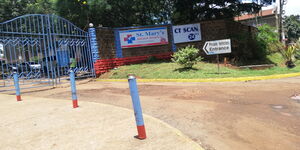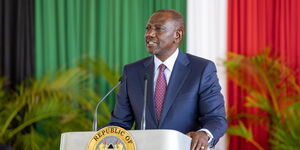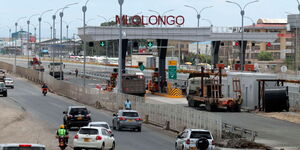The National Treasury's recent proposal in the Finance Bill 2024 to raise excise duty on fees charged for mobile wallet and bank account transactions is poised to have significant implications for Kenyans. If approved, sending Ksh5,000 via mobile money could cost up to Ksh140, a steep increase from the current charges.
Acting CEO of the Kenya Bankers Association (KBA), Raimond Molenje expressed concern over the proposed tax changes during an interview with Citizen TV on Wednesday, June 5. Currently, Kenyans are paying Ksh115 to transfer Ksh5,000.
Molenje warned that the government's plan to raise more taxes might backfire, pushing Kenyans away from digital payment methods and back to cash transactions.
The Finance Bill 2024 seeks to increase the excise duty on mobile money transfers between wallets from 15 per cent to 20 per cent. The same hike is proposed for transactions carried out through banks, money transfer agencies, and other financial service providers such as Saccos.
Moreover, the excise on mobile airtime and data charges is also set to rise from 15 per cent to 20 per cent.
"Suppose you were sending Ksh5,000 and a financial institution charges you Ksh100," Molenje explained.
"Currently, you will pay Ksh115 because the excise duty is just 15 percent. With the extension of excise to 20 percent and VAT coming in, KRA applies excise duty first, moving it from Ksh100 to Ksh120. Then, you apply VAT of 16 percent on Ksh120, so it moves from Ksh115 currently to Ksh140. You will incur an extra Ksh25 from that transaction."
Molenje criticised the government's assumption that taxing financial institutions will automatically increase revenue. He argued that the hike in excise duty and the introduction of Value Added Tax (VAT) on mobile banking transactions would drive lower-income customers to revert to cash, reducing the number of digital transactions and, consequently, government revenue.
"The government is making financial services very expensive. In this country, we have managed to lower these costs significantly, so people don’t feel the pinch when they transact," Molenje argued.
Adding, "Now, people will move away from banking mobile channels. Small transactions, often made by ordinary Kenyans, will collapse. There will be no revenue for the government as people resort to keeping their money under mattresses."
The KBA head pointed out that the Kenya Revenue Authority (KRA) imposes excise duty on transaction costs before VAT is applied, effectively doubling the tax burden when the 16 per cent VAT is added.
These proposals undo the tax cuts on money transfer charges introduced in the 2023 Finance Act, which aimed to alleviate the financial burden on Kenyans amid a tough economic climate.
Last year, the tax on airtime, data, and bank cash transfers was reduced by five per cent, while the tax on mobile wallet transfers was increased from 12 per cent.
Beyond the excise changes, the National Treasury proposes introducing VAT on various financial services, including forex transactions, cheque processing, and the issuance of securities such as bills of exchange, promissory notes, money orders, and postal orders.
VAT, levied at 16 per cent, would also be applied to the issuance of credit and debit cards if Parliament approves these measures.
These tax changes are part of a broader strategy by the government to enhance its tax collection, which has fallen short of targets in the current fiscal year. The government aims to collect Ksh2.94 trillion in the next fiscal year, up from Ksh2.62 trillion this year. By the end of March, total revenue collected was Ksh1.86 trillion, against a target of Ksh2.13 trillion.
The target for excise duties in the current fiscal year stands at Ksh350 billion, expected to rise to Ksh400 billion in 2024/2025.












